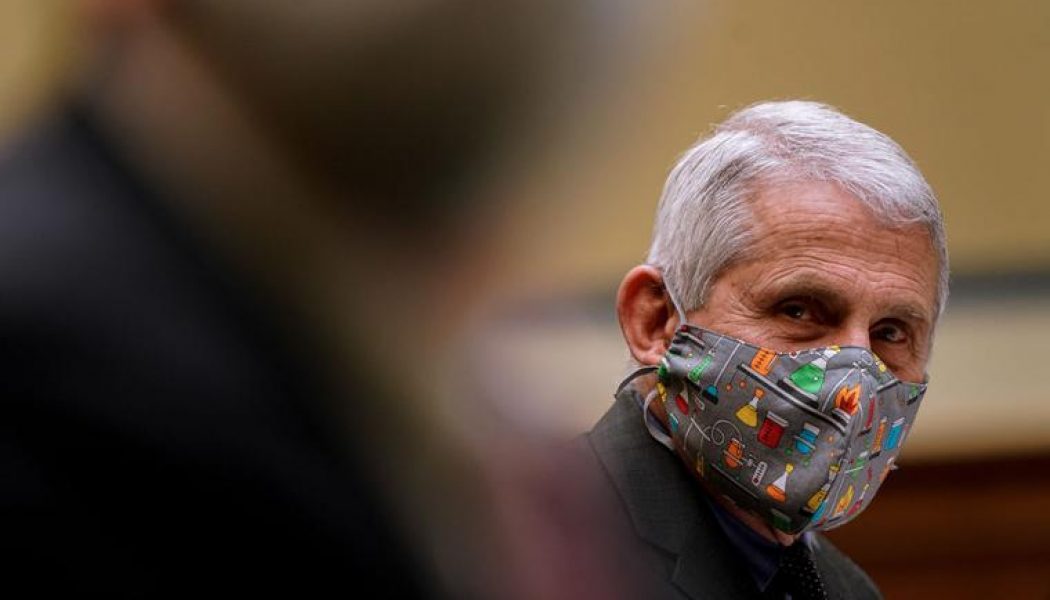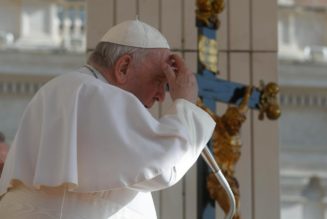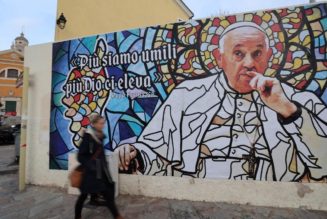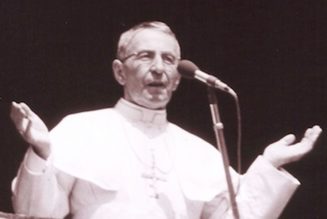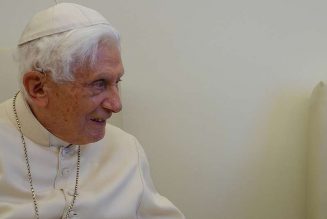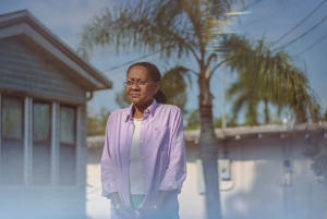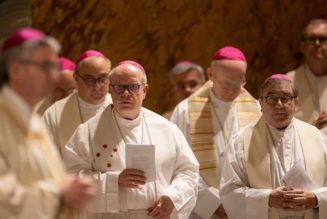
VATICAN CITY — Dr. Anthony Fauci, Chelsea Clinton, and the CEOs of Pharmaceutical manufacturers Moderna and Pfizer, which created leading COVID-19 vaccines, will be among the featured speakers at a healthcare conference next month co-hosted by the Vatican’s Pontifical Council for Culture.
Entitled “Exploring the Mind, Body & Soul. How Innovation and Novel Delivery Systems Improve Human Health,” the Vatican says the May 6-8 “Unite to Prevent” online conference will bring together doctors, scientists, religious leaders, philanthropists and others “to discuss the latest breakthroughs in medicine, healthcare delivery and prevention, as well as the human implications and cultural impact of technological advances.”
Co-hosted by the Cura Foundation, an organization that aims to improve global health and quality of life by streamlining health care delivery and reducing human suffering, the Vatican said in a statement that the conference will also promote a roundtable discussion on “Bridging Science and Faith” to explore “the relationship of religion and spirituality to health and wellbeing, including the relationship between mind, body and soul.”
The discussion will deal with the “deeper meaning of human existence and seek areas of convergence between the humanities and the natural sciences,” the statement read.
Pope Francis will address the conference in a video message at its conclusion, and priests, pastoral health care workers and students from Pontifical and Catholic Universities worldwide are invited to take part.
But the floor will mostly be given to more than 100 speakers from a wide variety of backgrounds, some of whom hold views diametrically opposed to core Church teachings. They include New Age guru Deepak Chopra, whom the conference describes as a “world-renowned pioneer in integrative medicine and personal transformation” but who has also been criticized as a promoter of pseudoscience; Dame Jane Goodall, the world famous conservationist and chimpanzee expert but also an ardent population control advocate who said last year the world’s population should reduce to what it was 500 years ago; and Chelsea Clinton, the daughter of Bill and Hillary Clinton, who holds a master’s degree in public health but who suggested in 2018 it would be un-Christian to ban legalized abortion.
Also speaking will be representatives from large pharmaceutical and tech companies, as well as from government administrations. They include Stéphane Bancel and Albert Bourla, respectively the CEOs of pharmaceutical giants Moderna and Pfizer which both manufacture COVID-19 vaccines tested using stem cell lines from aborted fetuses. Also in the line up is Henry Ji, CEO of Sorrento Therapeutics, which has been researching a serum that does not use such cell lines in production or testing.
The Vatican said in a December statement that when ethically irreproachable options are not available it is “morally acceptable to receive COVID-19 vaccines that have used cell lines from aborted fetuses in their research and production process,” when “there is a grave danger, such as the otherwise uncontainable spread of a serious pathological agent — in this case, the pandemic spread of the SARS-CoV-2 virus that causes COVID-19.” The Vatican has also emphasized the need to publicly object to morally compromised vaccines and research and to insist on ethically acceptable alternatives.
Other conference speakers include David Feinberg who leads Google Health that is working on artificial intelligence (AI) and other areas to answer major health care challenges, Jesuit-educated Dr. Anthony Fauci, an immunologist who has led both the Trump and Biden administrations’ response to COVID-19, and Amy Abernethy, principal deputy commissioner for the U.S. Food and Drug Administration.
As with the more recent conferences of this kind, speakers have also been invited from the world of entertainment, business and sports and include the supermodel-turned-entrepreneur Cindy Crawford, the singer Renée Fleming, Joe Perry of the rock group Aerosmith, former professional football player Brandon Marshall and hedge fund billionaire Ray Dalio, whose family has suffered from mental health issues, leading to him setting up a philanthropic foundation to support research in that area.
Discussion moderators will include well-known mainstream media personalities such as Katie Couric, Dr. Sanjay Gupta, Dr. Mehmet Oz and Robin Roberts.
The scope of these international conferences, organized from the start by the Pontifical Council for Culture in collaboration with Robin Smith, president of the Stem for Life Foundation, has broadened since they began 10 years ago under Pope Benedict XVI.
Working closely with the Vatican’s Science and Faith Foundation (STOQ), a subsidiary of the Cura Foundation, and whose origins began during the Jubilee Year under Pope St. John Paul II, their original aim was limited to promoting adult stem cell research.
The first conference, which took place in November 2011 on the theme “Adult Stem Cells: Science and the Future of Man and Culture,” included as speakers Tommy Thompson, secretary of Health and Human Services during the George W. Bush administration, and Archbishop Vincenzo Paglia, then bishop of Terni-Narni-Amelia. The second international conference, on the theme “Adult Stem Cell Conference: Regenerative Medicine — A Fundamental Shift in Science & Culture,” took place in April 2013 and included journalists Peggy Noonan and Bill Hemmer as moderators. The third conference, in April 2016, was aimed at raising global awareness about cellular therapies to treat disease and reduce global suffering, and featured then Vice President Joe Biden who spoke about his faith and curing cancer (his son Beau died of the disease).
But controversy overtook the fourth conference when pop singer, LGBT rights advocate and Planned Parenthood supporter Katy Perry spoke about transcendental meditation. Various New Age items were also distributed to the participants, including “meditating eye” charm bangles and a book on transcendental meditation that the Vatican reportedly tried to block. Other speakers included Deepak Chopra, making his first appearance, American professional golfer and philanthropist for children’s health, Jack Nicklaus; British singer songwriter and humanitarian, Peter Gabriel, whose wife recovered from cancer after receiving a pioneering treatment; and American motivational and self-help life coach, Tony Robbins.
Called “Unite to Cure”, the April 2018 conference had departed from discussing solely adult stem-cell research and instead was dedicated to looking at “how science, technology and 21st century medicine will impact culture and society.”
In April 15 comments to the Register, conference organizer Msgr. Tomasz Trafny, who heads the science and faith section at the Pontifical Council for Culture, explained that one aim of these conferences is to bring personalities of “different opinions on certain issues and topics” so they can confront each other.
“If we were to invite only those who fully agree with what the Church teaches, we will feel happy and no one will complain,” he said. “So we invite people who think differently as it’s an opportunity for them to explain what they’re doing, but also for us to challenge them and ask difficult questions.”
Msgr. Trafny said he was aware of Goodall’s hardline positions, saying that such strong statements are “challenging” but added that “it’s important to start talking to these people and not exclude them, to try to understand them and challenge them to understand us and our point of view.
“Will we be able to reach agreement? I don’t know. Very often they will keep to their opinion but if we can start to dialogue, build a relationship, and show we can dialogue instead of fight, it would already be an important step forward. So that’s the commitment and challenge we’re facing.”
It’s an approach in keeping with the mandate of the Pontifical Council for Culture which, as its website says, “traces its origins to the Second Vatican Council and its opening up to that great, dynamic, worried and multiform world of contemporary culture.”
Msgr. Trafny said the “Unite to Prevent” conference, although more challenging now that it’s all online, is aimed at “creating a hotspot for discussion and also to exchange ideas,” also because communicating new therapies and research is not fully understandable, nor well executed. “The aim is to point to expertise, stress the importance of research,” he said.
Asked if, given that the Congregation for the Doctrine of the Faith has stressed the importance of protesting against abortion-tainted vaccines, even though they say their use is licit, the organizers will use this opportunity to make the concerns known to the CEOs of Moderna and Pfizer, Msgr. Trafny replied: “We think it’s better to raise their level of sensitivity and awareness instead of only complaining or condemning them. We want them to understand our point of view and invite them to think more broadly instead of saying: ‘You’re the bad guys.’ They are deeply convinced they’re doing good and sometimes only lack sensitivity because they’re not formed in the way we are.”
Addressing another criticism that these conferences seem more concerned with health and well-being rather than salvation and the good of souls, Msgr. Trafny rejected such a dichotomy, saying it is important to remind scientists that we are not just bodies but souls, as well.
“Biologists and sometimes physicians think the biological aspect is sufficient to take care of human being and we like to stress there’s more than just the human body, physiology and biological processes,” Msgr. Trafny said. “We want them to think about the human being in his totality, about mind and soul.”
As for the choice of speakers, Msgr. Trafny said it was a “huge and long process,” partly because many scientists today “don’t feel comfortable being associated with the Catholic Church,” but others, he said, “see it as a challenge and we appreciate that.”
He also stressed that as research today is performed more by industry rather than universities because of greater funding possibilities, speakers were chosen from industry, also to “secure a high-level discussion.”
The conference organizers have listed their sources of funding, with the leading benefactors being the Templeton Foundation, an organization geared to promoting research and dialogue that has funded these conferences for the past 10 years, and The Leona M. and Larry B. Helmsley Charitable Trust that funds health initiatives.
Msgr. Trafny said the Vatican itself does not receive any funding from these organizations beyond helping to organize the events.
He said, “It’s always challenging to run important events, especially today when we do it with no budget.”
Join Our Telegram Group : Salvation & Prosperity
